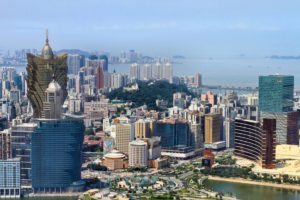Legalisation of casinos in Thailand: draft bill could be sent to cabinet by year-end

After cabinet approval, the draft bill will be forwarded for parliamentary deliberation.
Thailand.- Deputy finance minister Julapun Amornvivat has said that the draft bill to legalise casinos in Thailand could be submitted to the cabinet for consideration by year-end. After cabinet approval, the draft bill will be forwarded for parliamentary deliberation. The House of Representatives will reconvene for a regular session from mid-December until April next year.
Julapun said he expects that as many Thais as possible will be employed in the integrated resorts (IRs), which may require training to ensure the necessary skills.
The draft bill stipulates that complexes should be located in designated areas and operated by companies registered in Thailand with a minimum paid-up capital of THB10bn (US$283m). A policy panel led by the prime minister and a regulatory agency would oversee the industry. The government will consider what companies can offer and what types of projects the state wants to develop as man-made tourist attractions.
According to a recent study by the Fiscal Policy Office (FPO), the establishment of IRs could increase visits to Thailand by 5 to 20 per cent and increase spending per visitor from THB40,000 (US$1,184) to THB60,000 (US$1,776).
The proposed legislation includes 30-year casino licences, with the option for a 10-year renewal. Complexes should be located in designated areas and operated by companies registered in Thailand with a minimum paid-up capital of THB10bn (US$283m). A policy panel led by the prime minister and a regulatory agency would oversee the industry.
The FPO also reported that 45 suggestions will be put forward based on feedback from public hearings on the draft bill. According to a report by The Nation, one suggestion was to change the bill’s title from “Entertainment Complex with Casino” to “Integrated Resort Act.” Others include increasing the number of entertainment activities allowed in each complex from four to seven and including areas for promoting Thai culture. It was also suggested that the proportion of Thai shareholders in each entertainment complex should range from 30 to 51 per cent.
There are also several proposals on licence validity, ranging from a recommendation to reduce it from 30 to 10 years or extend it to 50 or 60 years. Some also proposed limiting the number of entertainment complexes to between three and seven, while it was also suggested that complexes should be located in major tourist destinations such as Phuket, Chiang Mai, Chonburi, Rayong, or Hua Hin, as opposed to Bangkok.
Another suggestion said casino entry fees for Thai nationals should be set at THB1,000 (US$30) to THB2,000 per time or THB20,000 to THB40,000 per year.
A report from JP Morgan predicted that IRs in Bangkok could collect between US$1.5 bn and US$5bn in revenue annually and between US$0.4bn to US$1.5bn in earnings before interest, taxation and depreciation (EBITDA) with an internal rate of return range of 12 per cent to 29 per cent. Analysts said legal casinos could add from 0.3 per cent to 1 per cent to the country’s gross domestic product (GDP) and boost tax revenue by 0.4 per cent to 1.2 per cent.
See also: Legalisation of casinos in Thailand: call for discussions on tax revenue collection









